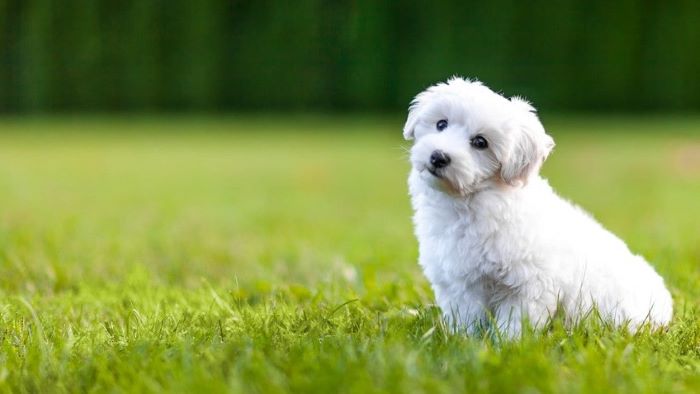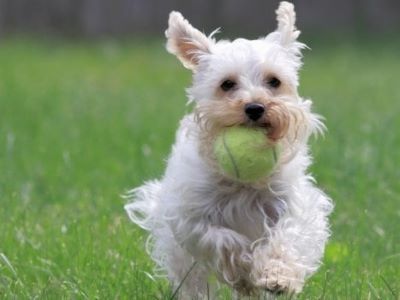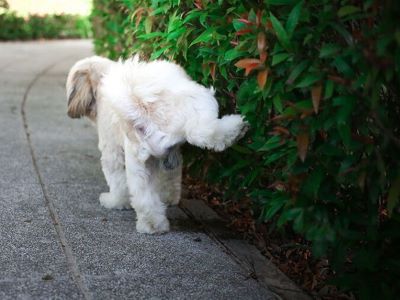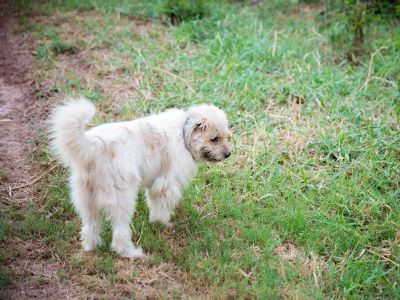Why does dog pee kill grass?🌿 This clearly innocent and curious question has baffled dog owners and garden enthusiasts alike for generations.

The charming moments spent with our dogs in the backyard may often be accompanied by the frustrating sight of yellowing, withered patches of grass. But fear not, we will uncover the secrets behind this phenomenon. So, let’s embark on a journey to demystify the age-old puzzle!🧩
Why Does Dog Pee Kill Grass?
“Dog urine contains urea, which breaks down into nitrogen. While nitrogen is essential for plant growth, concentrated levels in urine can overwhelm the grass, causing it to burn and turn yellow or brown“, confirms the experts at McGill.📃
Understanding dog urine composition involves recognizing key components like urea, nitrogen, and pH levels, let’s understand in detail:
- Urea: Urea is a fundamental element in dog urine, produced during protein digestion in the liver. It serves as a carrier for excess nitrogen, which is excreted from the body through urine[1].
- Nitrogen: Dog urine contains a significant amount of nitrogen, a vital nutrient for plant growth. Nitrogen is an essential component in fertilizers due to its role in promoting lush, green vegetation.🥬
- pH Levels: “Dog urine tends to be alkaline, with a pH level higher than neutral. This alkalinity can influence the pH of the soil where the urine is deposited“, confirms a study at PMC.
Here are a few factors through which variations in Urine Composition appear among Dogs:
1) Hydration: A well-hydrated dog typically produces more diluted urine, containing lower nitrogen concentrations. Dehydration can lead to more concentrated urine.
2) Diet: Diet plays a key role in shaping urine composition. High-protein diets can result in urine with elevated nitrogen levels, potentially increasing the risk of grass damage.🌿
3) Age and Health: Older dogs and those with specific medical conditions may exhibit differences in urine composition due to changes in metabolism and kidney function.

Factors Influencing Grass Damage
Understanding affecting variables allows pet owners to implement appropriate strategies for lawn care and pet management, here are some of them:
- Urine Volume: Larger dogs typically produce more urine than smaller breeds. Consequently, larger dogs may deposit larger quantities of urine on the same area of grass, potentially causing more extensive damage.🌿
- Body Weight: The body weight of a dog also influences the force with which urine is released. Heavier dogs may have a greater impact on the grass beneath them due to the higher pressure exerted during urination.
- Breed-Specific Habits: Different dog breeds may have distinct urination habits. For example, some breeds, like small terriers, tend to urinate in a more concentrated manner, while others, like retrievers, may disperse their urine across a larger area.
Here are gender-based factors:
- Male Dogs: Male dogs often lift their leg to urinate, directing the stream in a concentrated manner. This can lead to more noticeable burn spots in specific locations.🐶
- Female Dogs: Female dogs usually squat to urinate, resulting in a broader distribution of urine across the ground. While this can cause a more even distribution of damage, it may also affect a larger area of grass.🌿
The following are some environmental factors:
- Soil Type and Health: The type and health of the soil in your lawn can affect how it reacts to dog urine. Well-draining soils are better equipped to handle excess moisture from urine, whereas compacted or poorly-draining soils may exacerbate damage.
- Grass Type: Different grass species have varying levels of resilience to dog urine. Some types, such as Kentucky bluegrass and perennial ryegrass, are more sensitive, while others, like Bermuda grass and fescue, are more tolerant.
- Lawn Care Practices: The care and maintenance of your lawn also impact its ability to recover from dog urine damage. Regular watering, proper fertilization, and aeration can all contribute to healthier, more resilient grass.🥬

Mitigating Grass Damage from Dog Urine
In conclusion, mitigating grass damage from dog urine involves a multi-faceted approach. Here are some tips by combining these you can maintain a beautiful lawn while keeping your furry friend happy:
1) Lawn Care Strategies
Here are some beautifying tips for your lawn:
- Regular Watering: Ensuring your lawn receives consistent and adequate watering💧🚿 can help dilute the effects of dog urine. Frequent irrigation helps wash away excess nitrogen and minimizes the risk of urine damage.
- Soil Amendment: Adjusting soil pH through proper soil amendment techniques can create a more hospitable environment for your grass. Adding substances like lime can counteract the alkaline nature of dog urine, reducing the impact on the soil.
- Proper Fertilization: Be cautious with the timing and amount of fertilizer you apply to your lawn. Over-fertilizing can compound the nitrogen content in the soil, making it more susceptible to urine damage. Opt for slow-release, balanced fertilizers to promote healthy grass growth.
- Aeration: Regularly aerating your lawn can improve soil drainage and reduce compaction. This allows water to penetrate more efficiently, helping dilute and disperse urine in the soil.
For homeowners with artificial grass, using a specialized cleaner like the best artificial grass cleaner for dog urine UK can help remove stubborn urine stains and odors.
2) Training and Behavior Modification
Train your dog to use a specific area in your yard for urination. This designated spot can be lined with gravel or mulch to minimize grass damage.
Maintain a consistent schedule for your dog’s bathroom breaks. This routine can help prevent concentrated urination in one area of the lawn.

Reward your dog for using the designated urination area. Positive reinforcement encourages desired behaviour and reinforces the idea of specific spots for bathroom breaks.
In cases of persistent behavioural issues, consider consulting a professional dog trainer or behaviourist who specializes in addressing urination habits.
In addition to urine damage, dog owners may also notice patches of grass chewed up or pulled out, leading some to wonder – why do dogs eat grass?
3) Commercial and DIY Solutions
Follow these DIY tips to maintain your lush green lawn:
- Lawn Repair Kits: Commercial lawn repair kits are available that contain grass seed, fertilizer, and mulch. These kits can help you patch up damaged areas of your lawn.
- Natural Remedies: Some pet owners have had success with natural remedies like gypsum, which can help neutralize the effects of urine on soil pH. Always consult with a lawn care expert before applying any substances to your lawn.
- Hydrate Your Dog: Ensure your dog remains adequately hydrated. Well-hydrated dogs produce more diluted urine, which is less likely to harm the grass.🌿
- Commercial Supplements: Certain commercial supplements are designed to alter the composition of a dog’s urine, reducing its impact on grass. These products can be a useful option for some pet owners.
Environmental Concerns
Environmental considerations related to dog urine involve the risk of nitrogen runoff into nearby water bodies, which can lead to water pollution and ecological imbalances.
“Excess nitrogen from urine can leach into the soil and eventually reach streams, rivers, and lakes, contributing to eutrophication and harming aquatic ecosystems“, confirmed by USGS in a study.

On the health front, dogs with urine containing exceptionally high nitrogen levels due to diet or health issues may experience strain on their kidneys and urinary tract, potentially leading to urinary tract infections or kidney problems.🫘
Additionally, dogs that frequently urinate in concentrated amounts risk dehydration if they don’t drink enough water to compensate for fluid loss.
To address these concerns, responsible lawn care practices and proper dietary adjustments for dogs can help minimize the environmental impact of dog urine and promote their health and well-being.❤️🩹
Fake grass offers an environmentally-friendly alternative as it avoids nitrogen runoff. However, cleaning is crucial – learn how to clean fake grass from dog urine.
FAQs
How to Stop Dog Urine From Killing Grass Naturally?
For grass, sprinkle garden lime on the area. This helps both to eliminate the odour and neutralize the urine to help restore your grass. For grass, use an oscillating sprinkler daily on the affected areas. The water will slowly dilute the urine, so it seeps into the soil.
Why Does Dog Pee Kill Grass?
The simple answer is nitrates. If you fertilize your lawn, it already has elevated levels of nitrates, so adding even a little more can kill your grass. Dog urine contains a variety of nitrogen compounds that kill grass.
What Smells Do Dogs Hate to Pee On?
Vinegar. Just like citrus, dogs cannot stand the smell of vinegar. It seems that a dog’s heightened sense of smell is not keen on acidic smells, vinegar being another very acidic substance. It is worth noting that dogs are more repelled by the smell of vinegar than they are by lemons and oranges.
How Do I Stop My Dog From Peeing Everywhere?
Establish a routine with a regular feeding and go-outside schedule. If you have a puppy, take them out every one to two hours. If your schedule makes that difficult, consider hiring a dog walker. Use positive reinforcement, such as praise and treats, as soon as your dog pees outside.
Summary
Why does dog pee kill grass? This article explores the scientific reasons behind the damage dog urine can cause to lawns. We dived into the composition of dog urine, including urea and nitrogen, and how these elements affect the pH levels of soil. 🌱
Factors such as dog size, breed, and environmental conditions are considered. The summary also highlights preventive measures for protecting your lawn and discusses the environmental and health implications of nitrogen runoff.
Overall, we understood the common issues and solutions for maintaining both a healthy lawn and a happy dog!🐾
Reference:
- Weiner, I. D., Mitch, W. E., & Sands, J. M. (2014). Urea and ammonia metabolism and the control of renal nitrogen excretion. Clinical Journal of the American Society of Nephrology– NIH



